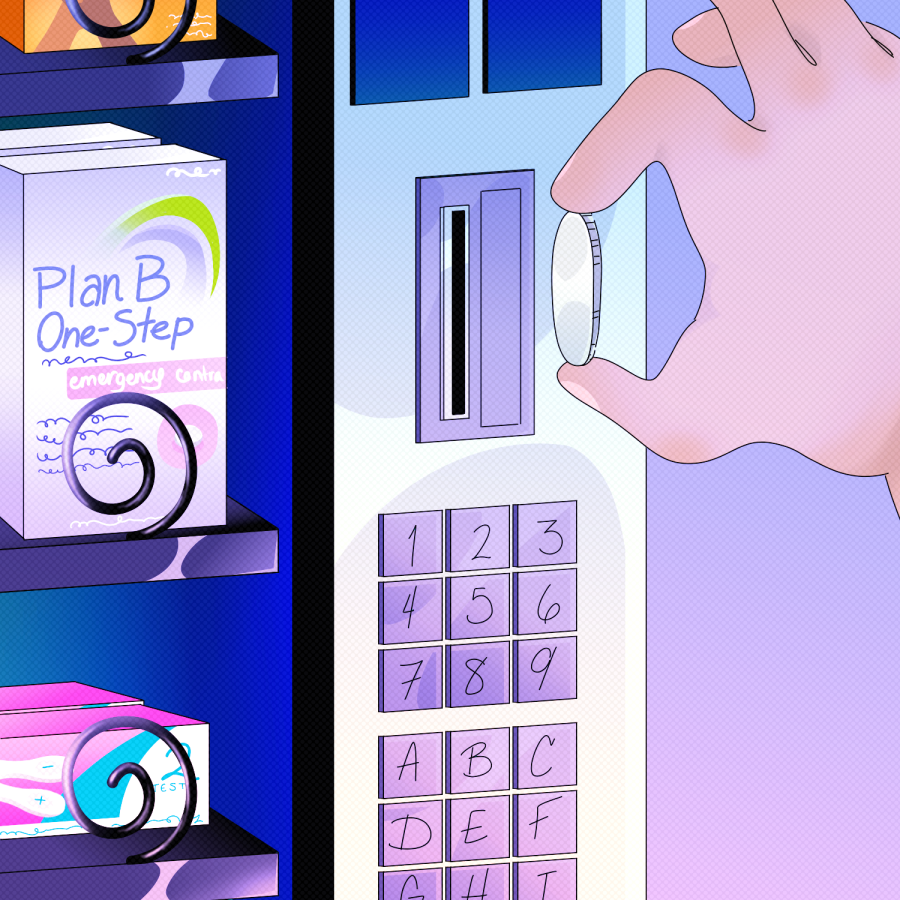Student Government passes resolution in support of emergency contraception vending machine on campus
April 17, 2022
Editor’s Note: This article first appeared in the April 12, 2022 flipbook.
Student Government passed a resolution April 5 in support of Emergency Contraception 4 Every Campus’ initiative to bring a 24-hour accessible emergency contraception vending machine to campus.
The group aims to put a vending machine with Plan B on campus to help students bypass barriers to emergency contraception like cost, anxiety and privacy. Organization founder Nikita Kakkad said the implementation of Senate Bill 8 and the closure of the Forty Acres Pharmacy in June, which formerly sold Plan B to students, led her to write the resolution.
“It would show that the University is affirming the fact that women’s health matters are important and that students deserve a choice in their reproductive futures,” said Kakkad, a biomedical engineering and plan II sophomore.
The resolution uses data from a survey conducted by the group which found that the majority of the 500 respondents supported accessible emergency contraception on campus.
College of Liberal Arts representative Kennedy Bailey said a vending machine would make buying Plan B more convenient and reduce the stress of having to interact with pharmacy employees.
“We’re talking about something that can be extremely personal and has a lot of reservation and anxiety around it,” government freshman Bailey said. “Any of those kinds of barriers that you can take away is going to be beneficial to students.”
Kakkad said the vending machine will cost around $2,000-$3,000, which could be included in the SG budget for the 2022-2023 school year or come from special projects funding. They aim to sell Plan B at $10 or less so that Plan B will pay for itself but SG will not profit. Most pharmacies sell Plan B for $40-50.
“If (college students) are having sex, which is to be expected … they should have access to the health care that they need,” said Surekha Balakrishnan, McCombs representative and a government and marketing sophomore. “Acquiring Plan B for any college student … is a problem of systemic inequality.”
Barbara Blizzard, chief of women’s health at University Health Services, said along with the University providing contact information for reproductive health services, a vending machine could be beneficial for students.
“I’m certainly for anything that reduces risk,” Blizzard said. “We want folks to have the confidence that they will achieve their academic goals and contraception is part of that sometimes.”
Kakkad said she has talked to manufacturers but does not have administrative approval yet. The resolution passed in SG with 26 yes’ and one nay. Currently, over 30 college campuses have emergency contraception vending machines, according to the resolution. Kakkad said passing the legislation through Student Government would give them more access to administration, as all passed resolutions go to the Dean of Students office.
“There’s a whole implementation team dedicated to making resolutions a reality,” Kakkad said. “It just gives us wider resources to put at our disposal.”
Kakkad said she hopes the vending machine helps students feel supported in their reproductive decisions.
“I just hope students, even if they feel like they’re alone in these decisions, (know) there’s a large amount of people on campus that care about them and they know it’s not something to be ashamed of,” Kakkad said.












